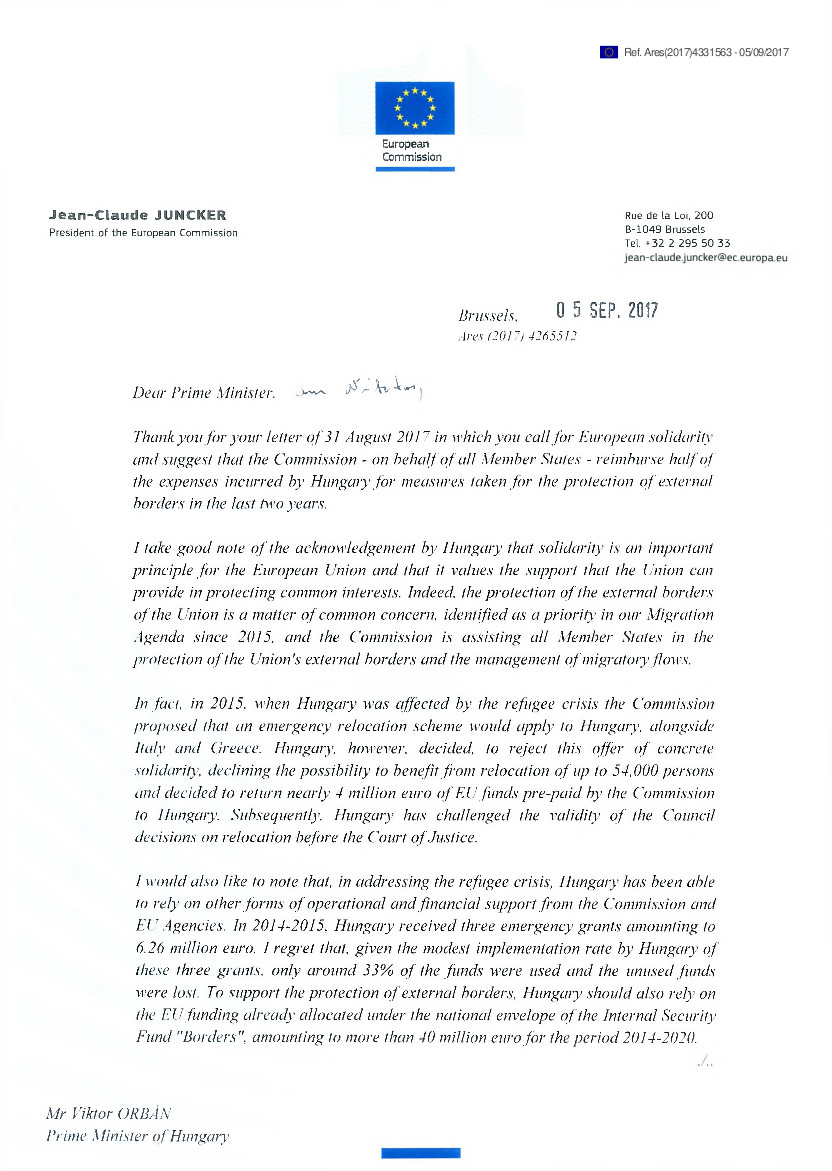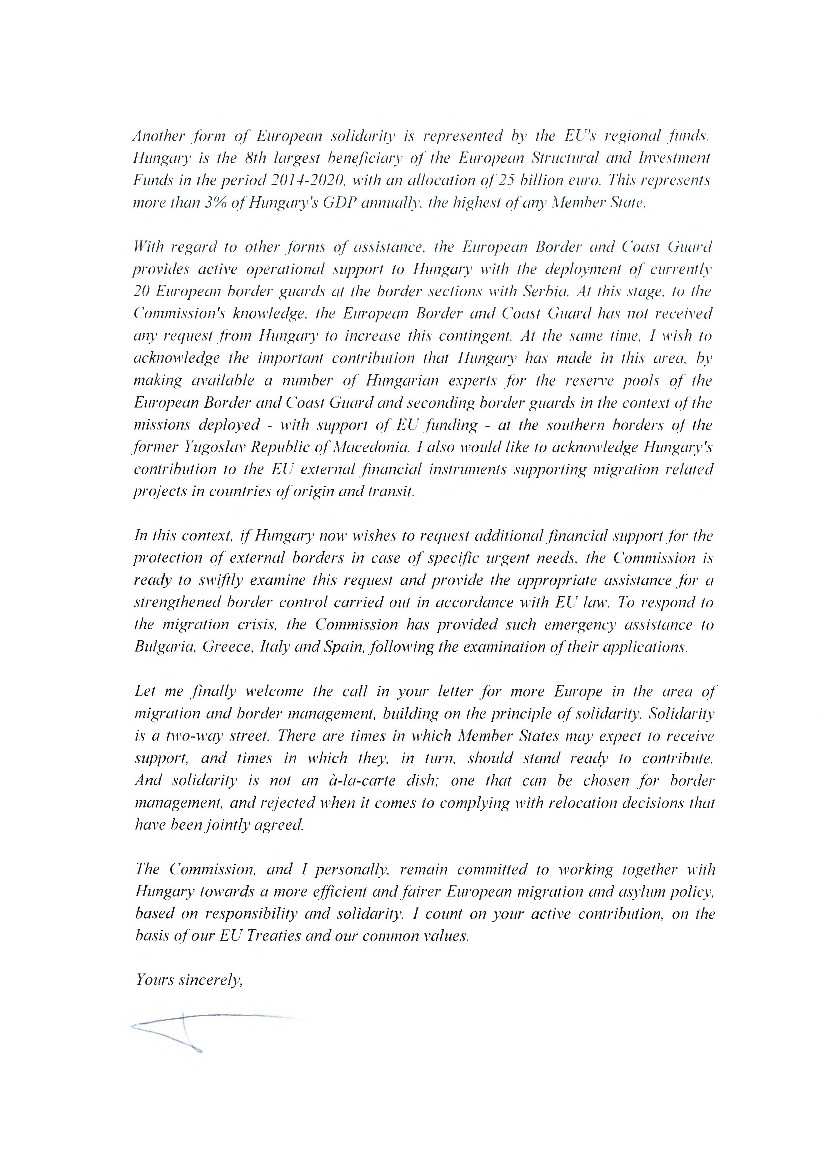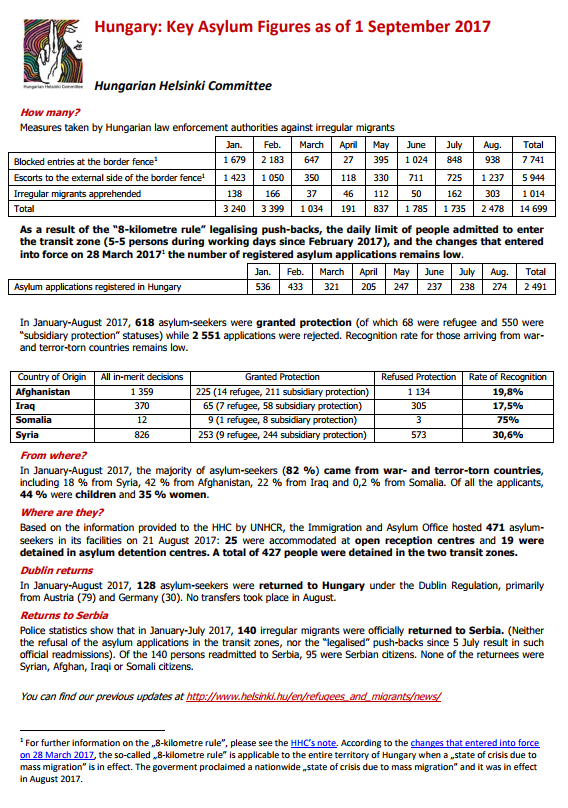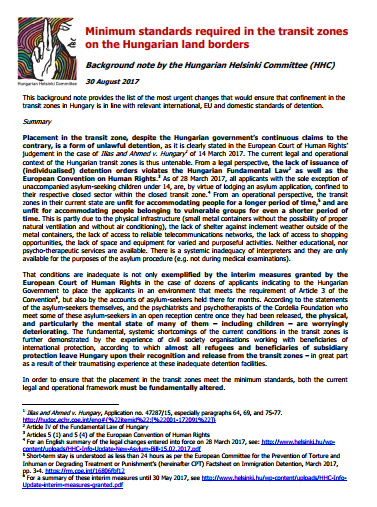Pro-government propaganda outlet Origo.hu reports that the Hungarian government will produce another national consultation — this time on the “Soros Plan.” Experts we spoke to offered us a very grim forecast for the upcoming several months. This may be the most intense national consultation campaign yet.
On visit to Hungary, UNHCR Chief calls for end to detention and greater solidarity with refugees
UN High Commissioner for Refugees Filippo Grandi Tuesday called on Hungary to improve access for people seeking asylum and to do away with its so-called border “transit zones,” which he said are in effect detention centres.
Der Gerichtshof weist die Klagen der Slowakei und Ungarns gegen die vorläufige obligatorische Regelung zur Umsiedlung von Asylbewerbern ab
Als Reaktion auf die Flüchtlingskrise, die im Laufe des Sommers 2015 über Europa hereinbrach, erließ der Rat der Europäischen Union einen Beschluss1 , um Italien und Griechenland bei der Bewältigung des massiven Zustroms von Migranten zu unterstützen. Der Beschluss sieht vor, dass 120 000 Personen, die unzweifelhaft internationalen Schutz benötigen, über einen Zeitraum von zwei Jahren aus diesen beiden Mitgliedstaaten in die anderen Mitgliedstaaten der Union umgesiedelt werden.
Juncker’s letter in response to Orbán’s request


Orbán’s 400 mn euro request to Juncker: „the security of European citizens was financed by Hungarian taxpayers“


Hungary: Key Asylum Figures as of 1 September 2017
Gov’t to maintain migration state of crisis in run-up to 2018 election
The government has prolonged the illegal migration state of crisis by six months from September 7 until March 8, 2018 at the recommendation of the Minister of Interior, government spokesman Zoltán Kovács has announced.
The Beacon contacted the Ministry of Interior to request exact statistics about illegal border crossings during the state of crisis to determine whether the extension is warranted. According to the ministry’s surprisingly swift answer, since mid-September, 2015 some 209,713 illegal border crossers have been apprehended, 14,287 detained and escorted back to the border, and 40,411 repelled. (It is not clear what the ministry means by “repelled”, megakadályozás in Hungarian, and the Beacon has requested more specific definitions of these terms.)
The Beacon contacted the Ministry of Interior to request exact statistics about illegal border crossings during the state of crisis to determine whether the extension is warranted. According to the ministry’s surprisingly swift answer, since mid-September, 2015 some 209,713 illegal border crossers have been apprehended, 14,287 detained and escorted back to the border, and 40,411 repelled. (It is not clear what the ministry means by “repelled”, megakadályozás in Hungarian, and the Beacon has requested more specific definitions of these terms.)
Life in the Hungarian transit zones: no proper food, medical care or education (+ Video)
An Afghan-Iranian family with three children waited eight months at the Serbian-Hungarian border to be able to apply for refugee status. After the long wait, in April 2017 they were admitted to the so-called ’transit zone’ where they were practically locked up behind barbed wire for four months. They told Atlatszo.hu about the inhumane conditions in the transit zone: no food for the father, harassment and doctor’s visits in handcuffs. Hungarian authorities want to keep the conditions in transit zones a secret, but we were shown cell phone photos that were taken inside.
Ungarisches Helsinki Komitee: Minimum standards required in the transit zones on the Hungarian land borders
Nach Ungarn muss keiner zurück
Kritik am ungarischen Asyl-System gibt es schon lange. So werden Asylbewerber dort systematisch in Gewahrsam genommen. Nun hat Deutschland Konsequenzen gezogen: Berlin führt Flüchtlinge nicht mehr nach Ungarn zurück, wie es das so genannte Dublin-System eigentlich vorsieht. Gründe sind die Bedingungen, unter denen Asylsuchende dort leben. Laut Dublin-Regel muss der Staat, in den ein Asylbewerber zuerst eingereist ist, das Asylverfahren durchführen.


